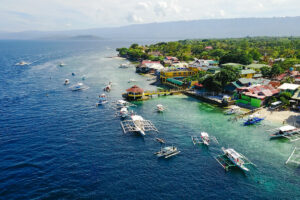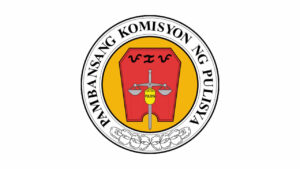Collaborating with the French to save our seas

The Philippines is an archipelago with over 7,000 islands and 36,000 kilometers of coastline. This unique feature endows our nation with rich marine diversity — a variety of ecosystems, including coral reefs, mangroves, seagrass beds, and marine-protected areas that are home to thousands of marine species.
The situation, however, is far from idyllic.
The Philippines faces numerous challenges to its marine environment, including overfishing, pollution, and habitat destruction. We also have to contend with the impact of climate change such as rising sea levels and ocean acidification.
As if these were not enough, the illegal activities of irresponsible states like China exacerbate the situation. These activities include incursions into what has been legally established as belonging to our Exclusive Economic Zone, intimidating our soldiers, using water cannons and military-grade lasers, as well as building artificial islands. These artificial islands threaten the environment and contribute to tensions in the region, further complicating efforts to ensure sustainable resource management.
Geopolitical tensions in the West Philippine Sea also affect Filipino fishermen. According to data from the Philippine Statistics Authority, fish catch in the area dropped by 6.78% in the first half of the year compared to the same period last year. Overfishing by foreign vessels, particularly from China, along with coral reef destruction and rising fuel costs, are key factors behind the decline.
According to the Philippine Chamber of Agriculture and Food, Inc., fish production in the West Philippine Sea fell to 53,158.94 metric tons in the second quarter compared to 54,213.84 metric tons in the same quarter of the previous year.
The livelihood of our local fishermen is at stake. Fishing communities derive their income exclusively from fishing activities, and now these are threatened by the presence of the Chinese.
The administration is not taking this sitting down. During the 27th ASEAN-China Summit, President Ferdinand Marcos, Jr. called for urgent action to prevent such behavior. He took the opportunity to criticize China’s disregard for international law. At the same time, he reaffirmed the Philippines’ commitment to regional peace and urged ASEAN to expedite negotiations for a binding Code of Conduct to manage tensions and promote stability in the region.
Further, during the 27th ASEAN Plus Three Summit in Laos, the President emphasized the need for ASEAN member-nations to adopt sustainable agricultural practices to strengthen regional food security amid supply chain disruptions, economic shocks, and climate change. He stressed the importance of supporting farming communities and leveraging agricultural technologies to build more resilient food systems.
ENGAGING WITH FRANCEEffectively protecting our marine environment can only be achieved through cooperation with states who share our values. France is one of the countries that come to mind. In June next year, France will host the 2025 United Nations Oceans Conference, a global forum that will foster international cooperation, enabling nations to share best practices, innovations, and forge partnerships to protect marine biodiversity and support sustainable development.
But France is not just a leader in global marine conservation efforts. More importantly, it has engaged in a crucial bilateral collaboration with the Philippines. For example, on the 8th anniversary of the Philippines’ arbitration victory against China on July 12 this year, Ambassador Marie Fontanel of the Embassy of France to the Philippines emphasized her country’s commitment to supporting the Philippines in our efforts in safeguarding the West Philippine Sea. She highlighted France’s increased activity in defense and security partnerships in the Indo-Pacific region, specifically the French Indo-Pacific Strategy.
France’s experience in managing marine reserves, enforcing fishing regulations, and reducing carbon emissions from marine activities provides valuable lessons that can be applied to Philippine waters, helping to improve conservation outcomes.
France has been at the forefront of marine conservation through initiatives like the Blue Nations Project, which emphasizes the protection of marine biodiversity, reducing plastic pollution, and promoting sustainable use of ocean resources. The Blue Nations initiative is one channel through which we are enhancing our partnership with France. These will drive economic benefits, particularly in coastal communities where the development of a blue economy can create new opportunities for sustainable livelihood, while ensuring the protection of the marine ecosystems on which these communities depend.
The collaboration between France and the Philippines underscores the shared responsibility of both nations in safeguarding vital ecosystems and promoting sustainable development, particularly in the context of international law and multilateralism.
“Conserve and sustainably use the oceans, seas and marine resources for sustainable development.” This is the 14th Sustainable Development Goal of the United Nations. As we strive to move toward the global goal on one hand, and secure our sovereign rights, protect the livelihood of our people, and conserve our marine resources, it is reassuring to think that we can look to other countries like France. Collaboration is crucial in operationalizing our commitment to safeguarding marine ecosystems for future generations.
Victor Andres “Dindo” C. Manhit is the president of the Stratbase ADR Institute.




